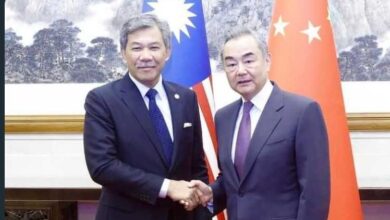UNGA 77: What to expect during the UN General Assembly

NEW YORK: The general debate of the 77th session of the United Nations General Assembly (UNGA), which begins on Tuesday (Sept 20) will be a key moment to watch, as world leaders converge to deliver speeches, laying out their government’s top priorities.
The UNGA opened on Sept 13 amid deepening global crises between the war in Ukraine, worsening climate disruption, humanitarian challenges, growing food insecurity, and with the world still reeling from the Covid-19 pandemic.
Unicef had earlier warned that school closures and a lack of access to quality learning during the pandemic exposed and exacerbated a pre-existing learning crisis, leaving millions of children without basic literacy and numeracy skills. It reported that only a third of 10-year-olds worldwide are estimated to be able to read and understand a simple written story.
Then there is a shocking new report from the UN’s International Labour Organisation, ‘Global Estimates of Modern Slavery’, which found that 50 million people were living in modern slavery in 2021. Of these people, 28 million were in forced labour and 22 million were trapped in forced marriages.
GENERAL ASSEMBLY
UNGA is the main policy-making organ of the UN. The Assembly meets in regular sessions from September to December each year, and thereafter as required.
This year’s theme is “A watershed moment: transformative solutions to interlocking challenges” that stems from the recognition that the world is at a critical moment in the history of the UN due to complex and interconnected crises.
The General Debate (Sept 20 – Sept 26) will take place in person once again after two years of disruption due to Covid-19, during which it was held virtually for the first time and featured pre-recorded speeches.
Malaysian Prime Minister Datuk Seri Ismail Sabri Yaakob will address the Assembly on Sept 23 where he will also express solidarity for the people of Myanmar.
He will be among the world leaders who will speak for approximately 20 minutes in turn. Besides US President Joe Biden and Ukrainian President Volodymyr Zelensky, expect addresses from new British Prime Minister Liz Truss, Iranian President Ebrahim Raisi, Egyptian President Abdel Fattah el-Sissi, and French President Emmanuel Macron, among others.
BUILDING HOPE AND SOLUTIONS
UN secretary-general António Guterres has stressed that next week’s General Debate must be about providing hope and overcoming divisions that are dramatically impacting the world.
“Our world is blighted by war, battered by climate chaos, scarred by hate and shamed by poverty, hunger and inequality.
“As fractures deepen and trust evaporates, we need to come together around solutions.
Solutions like those that will be showcased at the Transforming Education Summit.
“People need to see results in their everyday lives, or they will lose faith in their governments and institutions, and they will lose hope in the future.
“That hope can indeed only come through the dialogue and debate that are the beating heart of the UN and that must prevail next week against all divisions,” he said at a press briefing on Sept 14.
In the same vein, the new President of the GA, Csaba Kőrösi, in his opening speech said he would push for solutions to the widening geopolitical divides and protracted uncertainty through “solidarity, sustainability and science.”
The Hungarian diplomat reminded diplomats that the UN was “created out of the ashes of war and destruction with the intention of being a well of solutions.”
“Responding to humanity’s most pressing challenges demands that we work together, and that we reinvigorate inclusive, networked, and effective multilateralism and focus on that what unites us.
“It is our mission to come together when there are disagreements and to build bridges when there are deep divides.”
He listed five priorities for his presidency: stand firm on the basic principles of the UN Charter; make significant and measurable progress in sustainability transformation; aim at integrated and systemic solutions; enhance the role of science in decision-shaping; and cultivate solidarity to achieve breakthroughs or to avert future disasters.
GLOBAL CLIMATE ACTION
Kőrösi reminded world leaders that governments cannot return to “business as usual” as understood before the pandemic, noting that the only way to achieve better outcomes is to transform the world through systemic solutions.
“As the planet heats up and natural resources grow scarce, conflicts will worsen. The water crisis is poised to become our next greatest threat.
“Recent weeks have seen record-setting temperatures, raging fires and devastating floods. It looks as if Mother Nature is fighting back.”
He said while more manageable, the Covid-19 pandemic continues to wreak havoc across the globe.
“We will not be returning to the old normal. The only way to achieve better outcomes is to transform. The contours of the transformation we need are already known.
“The Agenda 2030 for Sustainable Development, the Sendai Framework, the Paris Agreement and Our Common Agenda all point us in the right direction.
“What remains to be seen is whether we will deliver.
“The world is looking to the UN for answers. As the Organisation’s chief deliberative body, the General Assembly bears a special responsibility.”
UKRAINE WAR
Kőrösi stressed that the conflict in Ukraine has been a “turning point”, and unless the world is vigilant, a method called “war” – rightly despised and denounced for decades – could reappear more frequently in the toolkit of international life.
“We must adopt a preventative approach and end conflicts and crises before they happen. This war must be stopped. It kills people, it kills development, it kills nature and kills dreams of millions.”
He also raised the alarm over the risk of using nuclear weapons, which is now higher than in the past 40 years.
“This ominous reality calls all of us to unite around the issue of disarmament.”
NST




